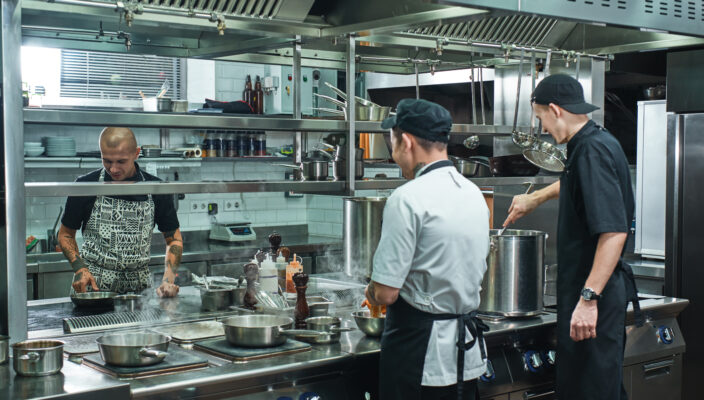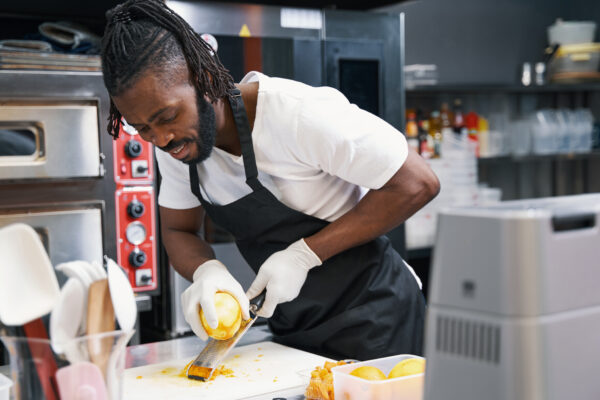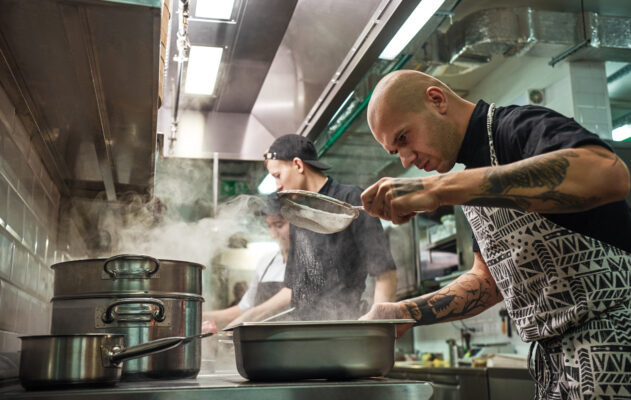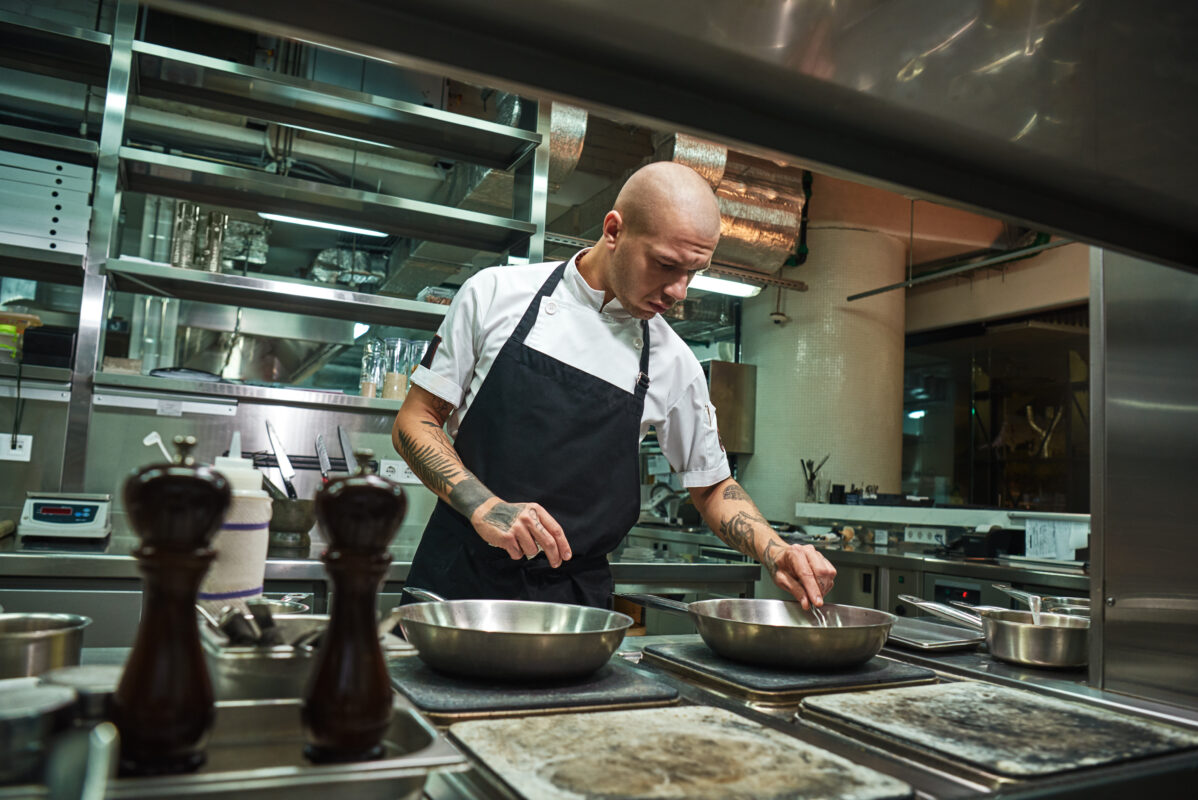How to start a career as a freelance chef
Embarking on a career as a freelance chef offers various avenues to explore. Opportunities may include working on a yacht, serving as a private chef for a family, temporarily assisting in busy restaurants, or even catering on a private plane. To thrive as a freelance chef, a genuine passion for the culinary industry is essential, coupled with years of diverse experience that enables adaptation to various kitchen environments. Additionally, one must be determined to establish a professional presence and secure freelance opportunities.
Challenges as a Chef
Demanding long hours and a relentless pursuit of perfection in every dish. While many chefs traditionally progress through the ranks within a specific establishment over several years, many now opt for freelance and private ventures. This discussion delves into the intricacies of building a successful career as a hired freelance chef.
Why choose a freelance chef career?
Despite the availability of consistent contracted employment, many chefs choose the path of freelancing. The advantages of pursuing freelance opportunities include:
– Flexibility in choosing work hours
– Improved work-life balance
– Compensation for all hours worked
– Expansion of industry contacts
– Exposure to diverse working methods
– Opportunities to work internationally
Given the current shortage of hospitality staff, skilled chefs find freelancing appealing due to the potential for higher earnings in exchange for potentially fewer working hours. The appeal lies in being compensated for every hour worked, a desire shared by most chefs, making freelance work an attractive option.

Essential experience for a freelance chef
For aspiring freelance or private chefs, acquiring a versatile skill set and adaptable experience is crucial. Specialising in only one cuisine may limit opportunities, so being well-rounded and understanding the nuances of various kitchens is paramount. Freelancing may not be suitable for inexperienced chefs, making it imperative to first hone skills under the guidance of a head chef. Young chefs seeking to broaden their expertise should explore different cuisines and volunteer on days off, as this gradual accumulation of experience prepares them for eventual freelance work.
Securing freelance chef opportunities
Effectively promoting one’s availability is the key to securing freelance or private chef positions. Whether already in demand or just starting, reaching out to businesses and agencies such as Dream Jobs Recruitment is essential for booking opportunities. Utilising social media platforms or having a well-optimised website enhances exposure to potential employers and facilitates networking within the industry, which is the core element of successful freelance work.
Online visibility, achieved through search engine optimisation for personal websites and maintaining a positive online presence on platforms like Instagram, Facebook, and LinkedIn, is vital. Sharing experiences, expertise, and visually appealing images of culinary creations builds credibility and trust. Including a list of previous employers and collaborating chefs adds another layer of credibility, simplifying and obtaining references.
Searching online for freelance chef vacancies, reaching out to restaurants, and leveraging industry connections widen the scope of opportunities beyond local venues. Whether in standard restaurants, large arenas, or event catering at racecourses, diversifying the search approach is key to finding rewarding freelance chef opportunities.
Navigating Chef Agencies
Engaging with chef agencies offers the advantage of representation and assistance in securing work opportunities, albeit with a deduction from your earnings. Despite this, the trade-off might be worthwhile, especially if you lack the connections to fill your schedule independently, something agencies already have in place. Agency personnel, often adept at negotiating salaries, may contribute to a more lucrative outcome than navigating the freelance path alone. By entrusting the sourcing of work and payment chasing to the agency, you gain the ability to focus solely on your culinary responsibilities.
Deciding whether to involve an agency depends on your circumstances. For those initiating their journey as freelance chefs, agency support can be beneficial in establishing a reputation. Agencies also serve as a viable option for chefs relocating to a new city. As your reputation grows and you demonstrate your culinary prowess, consistent bookings become more attainable through reliability and adaptability, fostering positive word-of-mouth recommendations that can significantly impact your future opportunities and bookings.

Weekly Work Hours for Freelance Chefs
The weekly work hours for freelance chefs vary, influenced by the season and individual preferences. During high seasons, working an average of 50-60 hours per week is common, a notable decrease from the 80 hours typically expected of full-time employees. However, the hours you commit to depend on your popularity and personal choices. While the financial implications of fewer working hours are uncertain, freelance work’s nature makes it challenging to predict weekly hours and earnings. Initially, working extensively can help build a reputation as a dependable and willing worker. As you establish yourself, the flexibility of freelance work allows you to enjoy the benefit of time off during less busy periods.
Essential Equipment for Freelance Chefs
While freelance chefs operate in fully equipped kitchens, carrying essential tools ensures optimal performance and conveys a professional image. These indispensable tools include:
– Chef knives: A reliable and familiar tool for efficient cutting.
– Knife roll: Provides safe storage and organisation, making a positive impression.
– Veg peeler: Enhances efficiency in food preparation.
– Knife sharpener: Crucial for maintaining sharpness and reducing injuries.
– Chef clothes: Fresh whites and safety shoes contribute to a professional appearance and emphasise hygiene.
Additional Requirements and Considerations
In addition to essential tools, proof of experience and references are crucial when starting at a new venue. Having personal transportation facilitates easy access to jobs. Up to date manual handling and HACCP training is crucial. On request you might been asked to preset your certificate.

Private Chef Opportunities
Embarking on a career as a private chef, whether for families at home or on luxury yachts, presents lucrative and rewarding prospects. While the work is demanding, it often offers more freedom and creativity compared to commercial kitchens. Private chefs may find themselves on call for a single employer, catering to last-minute requests. Social media proves instrumental in promoting availability to potential clients, extending beyond affluent professionals to include amateur and semi-professional athletes.
Freelance Chef Tax Responsibilities
As a self-employed chef, managing tax obligations and national insurance contributions becomes your responsibility. Utilising the government’s guidance and potentially employing a trusted accountant streamlines the process, allowing you to focus on your culinary work without added pressure. Alternatively, some chefs choose to handle these financial responsibilities independently to reduce expenses. We wouldn’t advise to do this.
If you feel you would like to know more about this or ready to start as an Agency chef email us and talk to Peter Guban at Peter@dreamjobs.ie


